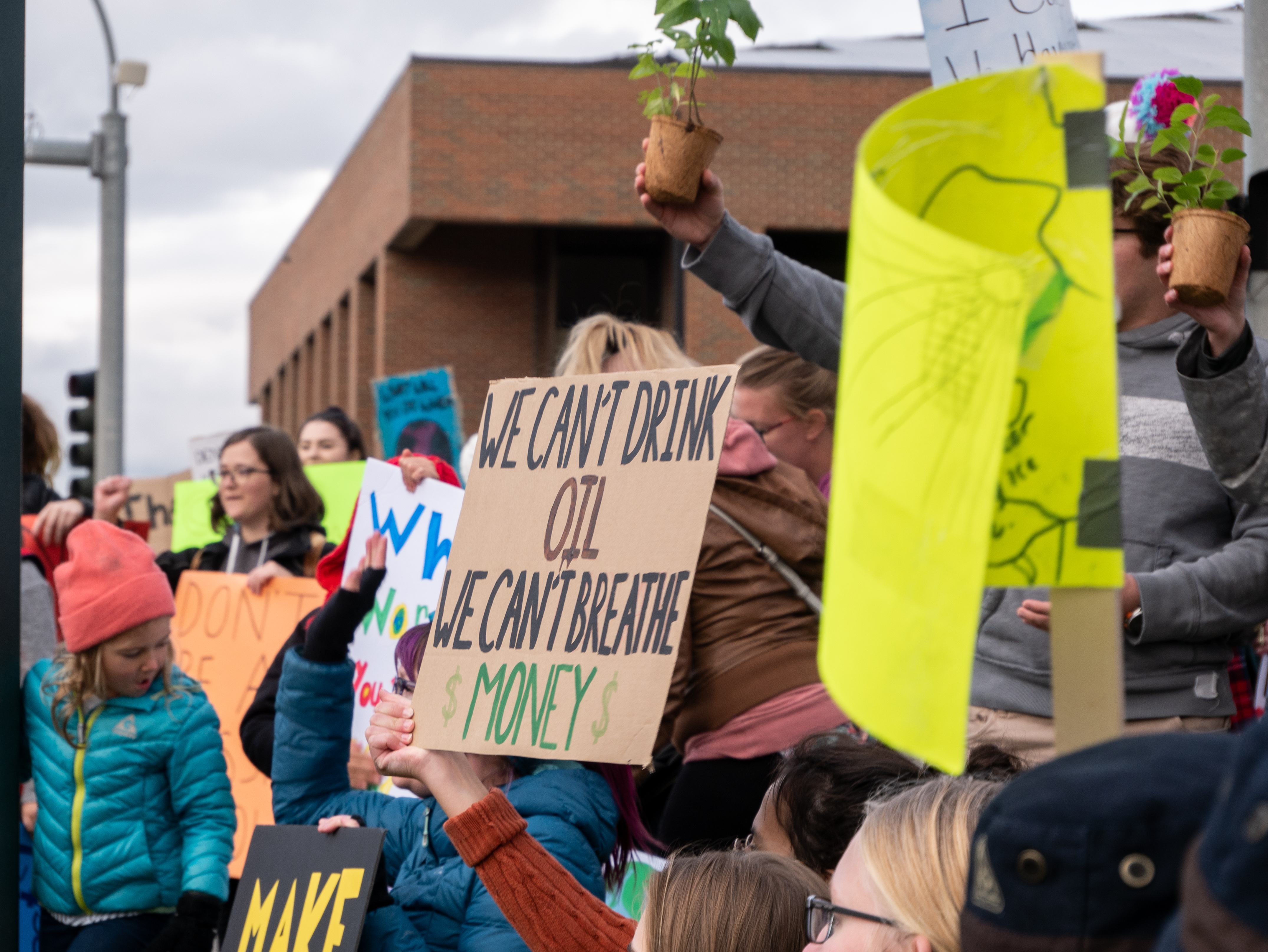It’s time to stop ignoring climate change. Seas are rising, oceans are full of trash and the Arctic is melting.
Still, we talk about the planet’s destruction as if it is a problem we can put off for future generations. World leaders have procrastinated for far too long – it’s time to hold them accountable.
Swedish climate activist Greta Thunberg put climate change in the headlines with her speech at the United Nation’s Climate Change Summit. Around the world, citizens have been striking and calling for action from political leaders. It is a start, she broke the ice (before it melted), but now we need to make something out of the conversation.
As individuals, we like to think we can make a difference. We drop our plastic grocery bags into blue bins and post on Facebook about how much we hate plastic straws, while sipping iced coffee out of a plastic cup with a metal straw. These actions are well intentioned, but too small.
According to a report published by the Carbon Disclosure Project in 2017, 100 companies were responsible for over 71 per cent of the planet’s greenhouse gas emissions. Without government regulations, it seems impossible to make a difference.
Few places on earth are more directly impacted than the Arctic. Melting sea ice and thawing permafrost threaten to rapidly speed up the effects of climate change. An article published in National Geographic last month explored the changing landscapes in the north and how they are being dealt with. Melting sea ice is opening previously impassable trade routes and uncovering buried resources. The Arctic, once seen as a barren wasteland, is starting to look like a frontier, waiting to be conquered.
“Because far from the barren back-country that many thought it to be, the Arctic is at the forefront of opportunity and abundance,” said Mike Pompeo, United States Secretary of State, during a speech to the Arctic Council in Finland this spring.
Instead of combatting climate change and stopping sea ice from melting, world leaders (Canada’s included) are preparing to pounce on resources as they thaw and exploit new trade routes in open water. This is the worst possible action – as frozen ground in the Arctic thaws, methane gas trapped inside is released into the atmosphere, contributing to climate change.
People like to believe they are saving the planet every time they choose to throw plastic into the recycle bin instead of the trash, but after it is taken away, it’s unclear where it ends up. CBC recently conducted an experiment where they bought bales of recycled plastic and tracked them. They bought from three different companies and only one actually recycled the products. The others ended up in a landfill or incinerator.
Toronto city council voted unanimously to declare a climate emergency this week. With the decision, came the commitment to reach net-zero emissions by 2050. More than 800 cities around the globe have already declared a climate emergency. Ideally, this will create a trend and entire countries will follow suit.
Federal governments know they will need to act, but without pressure, they will put off making major changes as long as possible. Declaring local emergencies is a step, as long as it is backed up by concrete action.
Thunberg comes from Sweden, the fifth most environmental country on the planet (Canada ranks 25), according to Yale University’s Environmental Performance Index, but has managed to start conversations world-wide. She may not be able to offer solutions (she is only 16), but she has put pressure on people who can.
As individuals, the best way we can make a change, is to hold leaders and corporations accountable. This is hard when the environment is only one piece of political party’s platforms and profit is the main priority. The problem is becoming harder to ignore and should be in the front of politician’s minds.
Everyone has an opinion on how the planet should be treated and who is to blame for its destruction. Young people like to blame old people and old people will point fingers at the young and deny the problem.
Throwing blame is as much a waste of time as doing nothing at all. The planet is too big for individuals to fix, but if we keep the conversation going and we refuse to let our global leaders put it on the back-burner, we might make some real progress.

